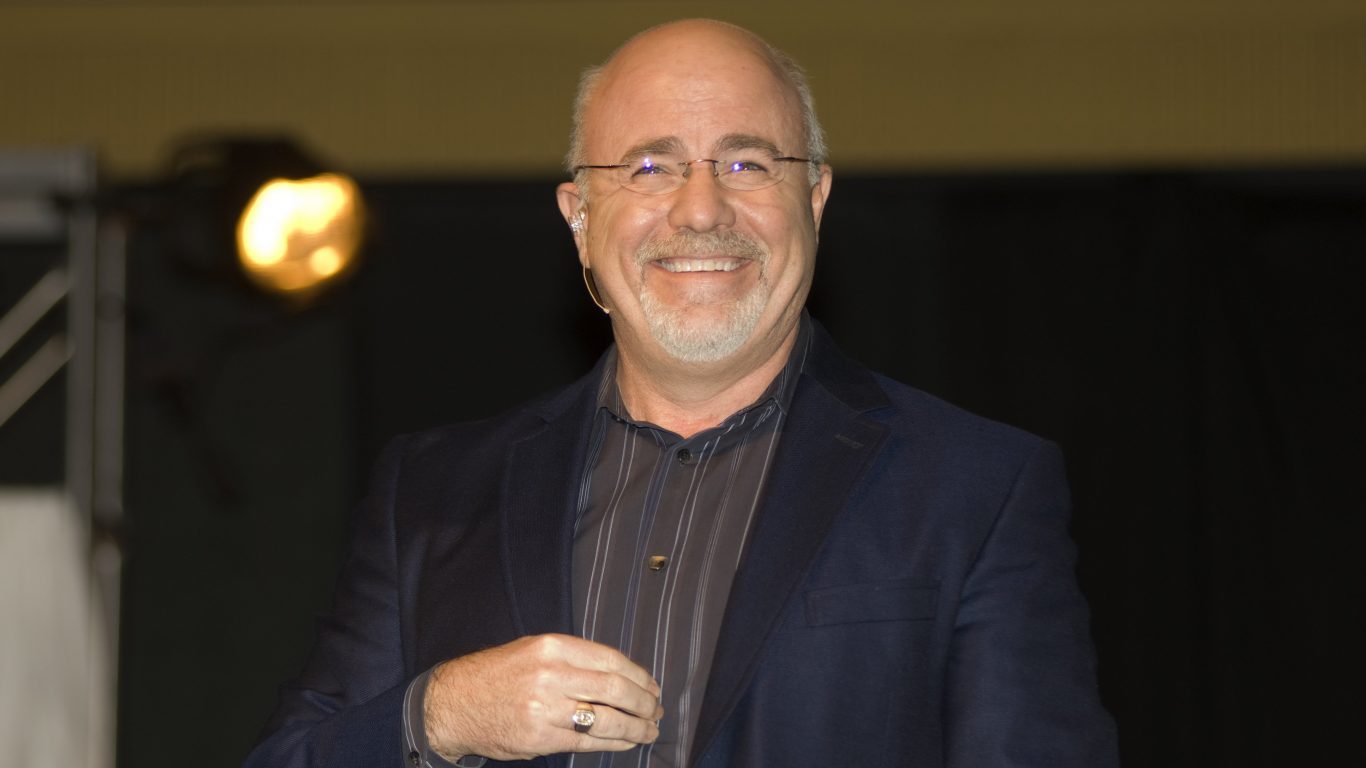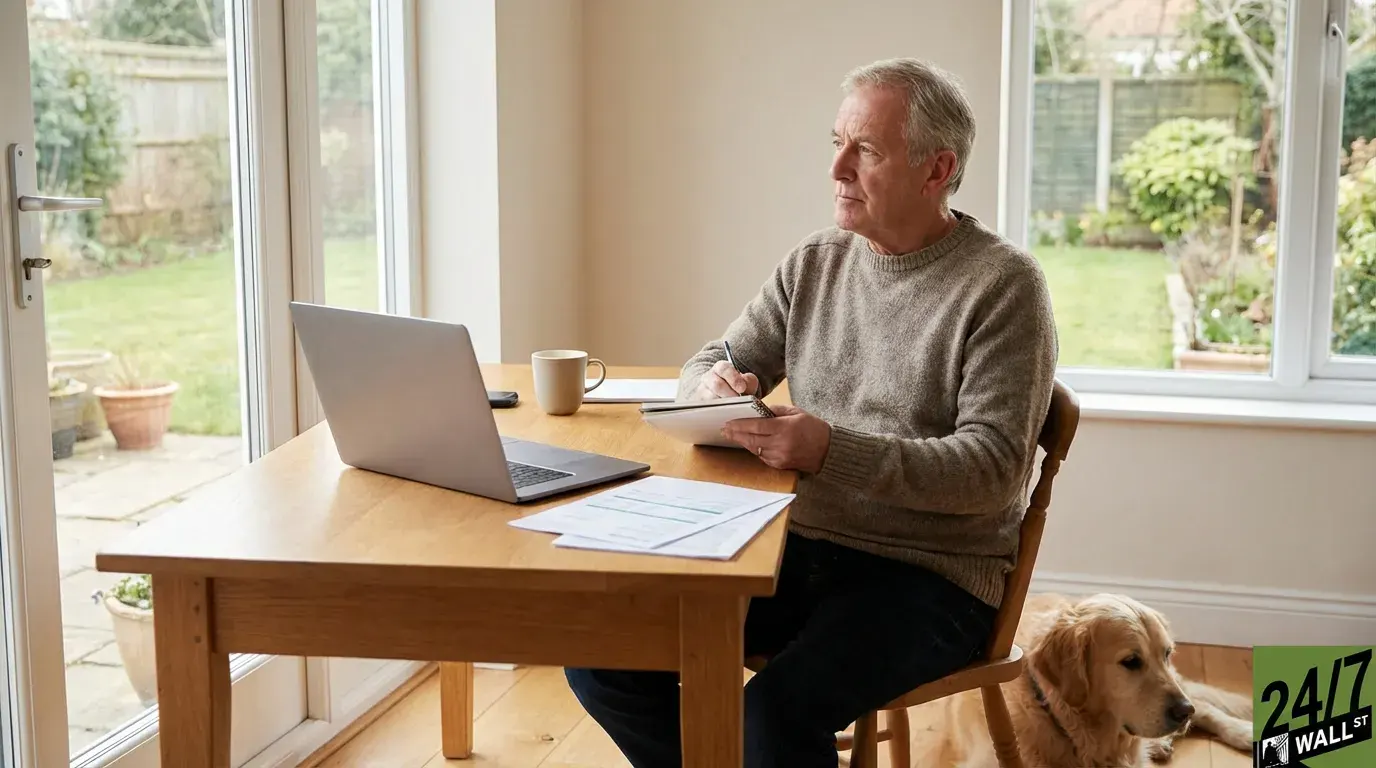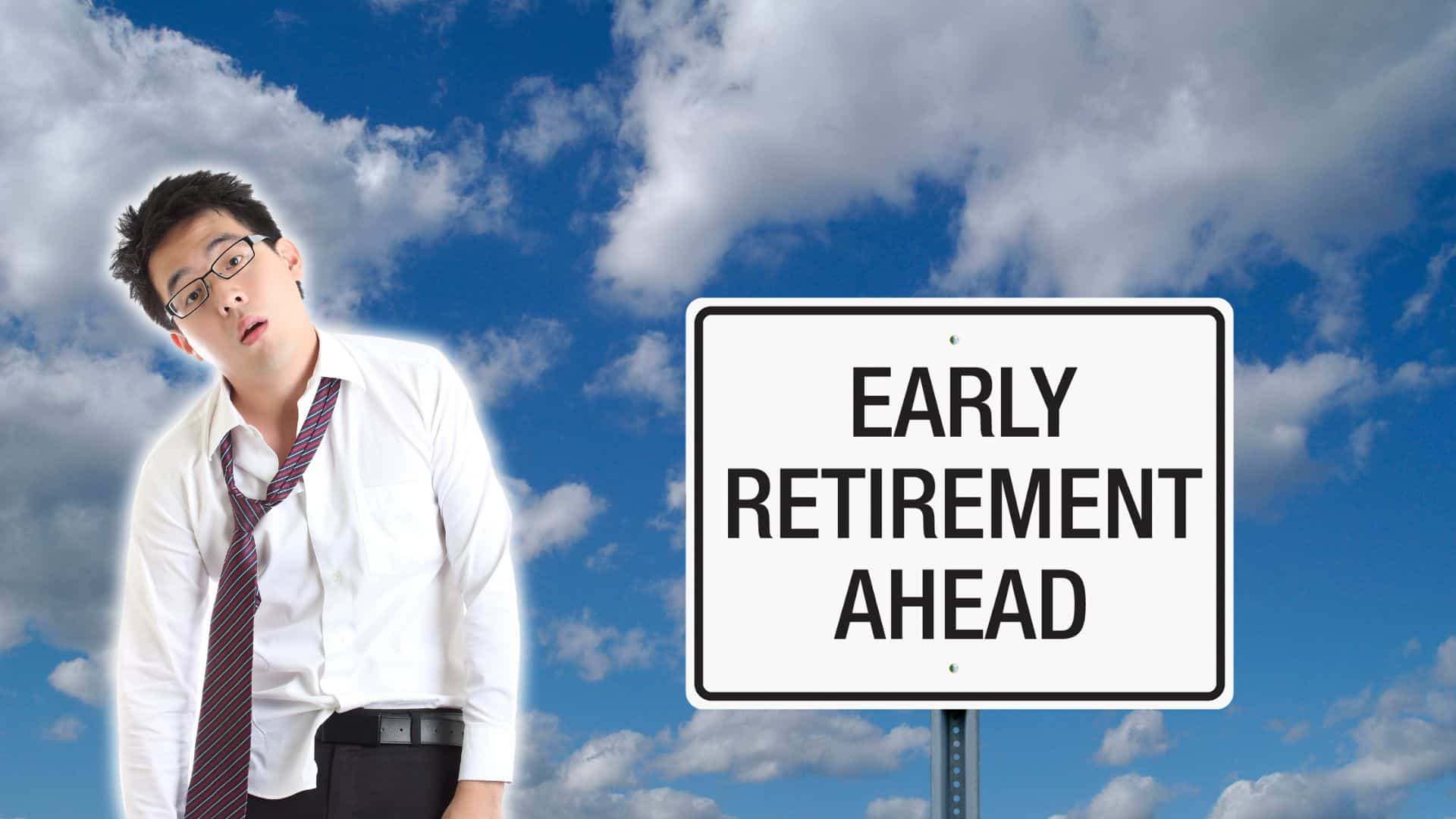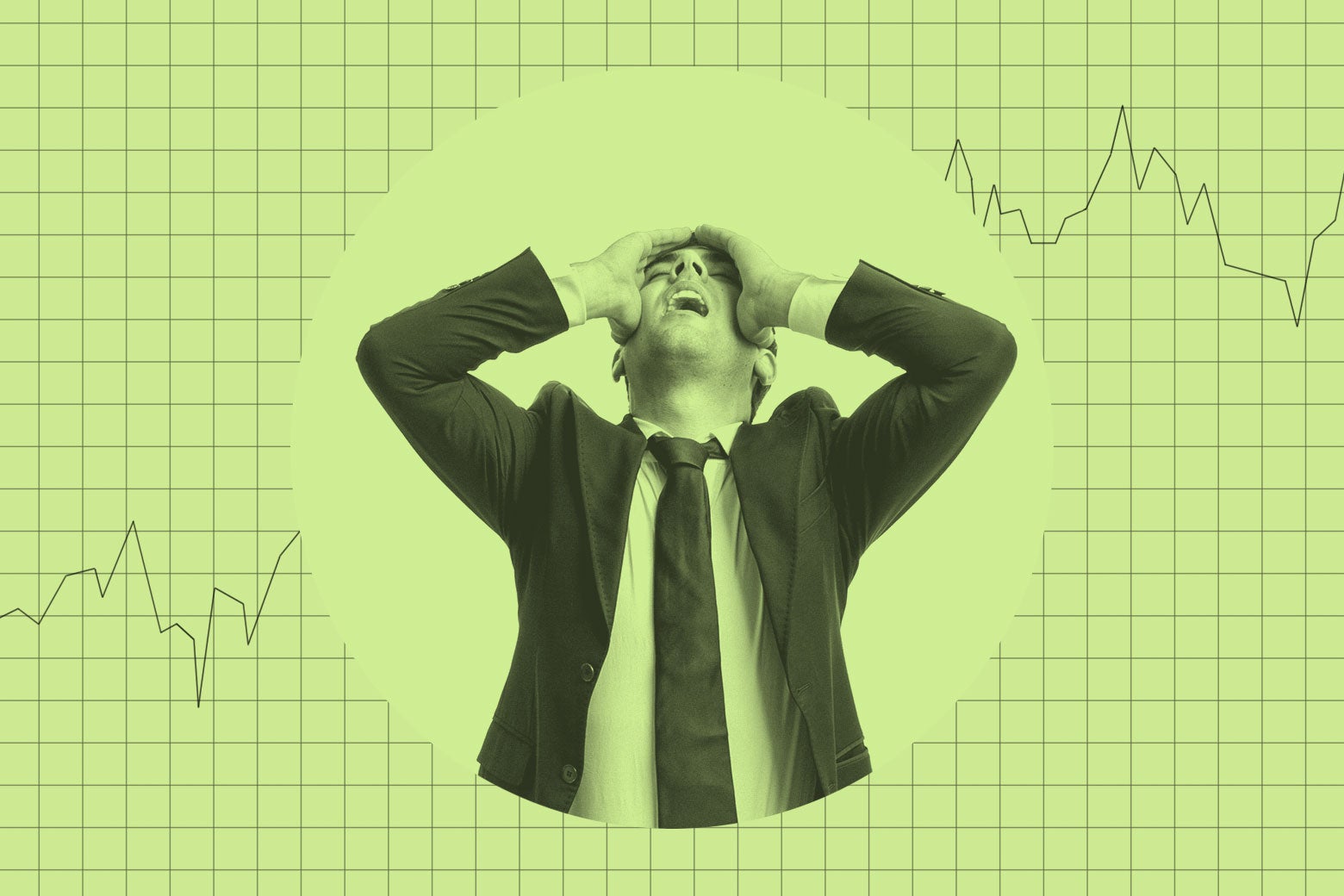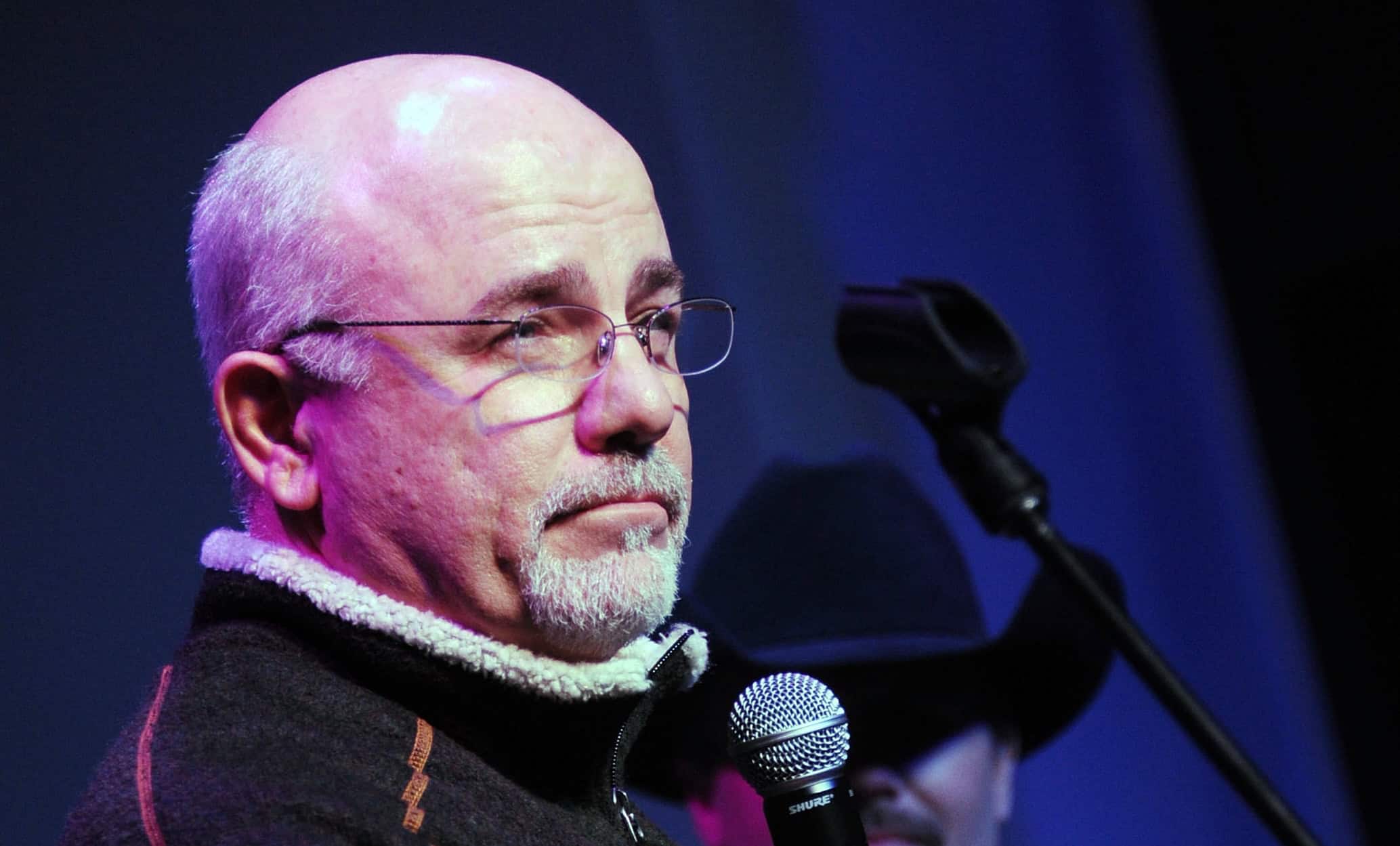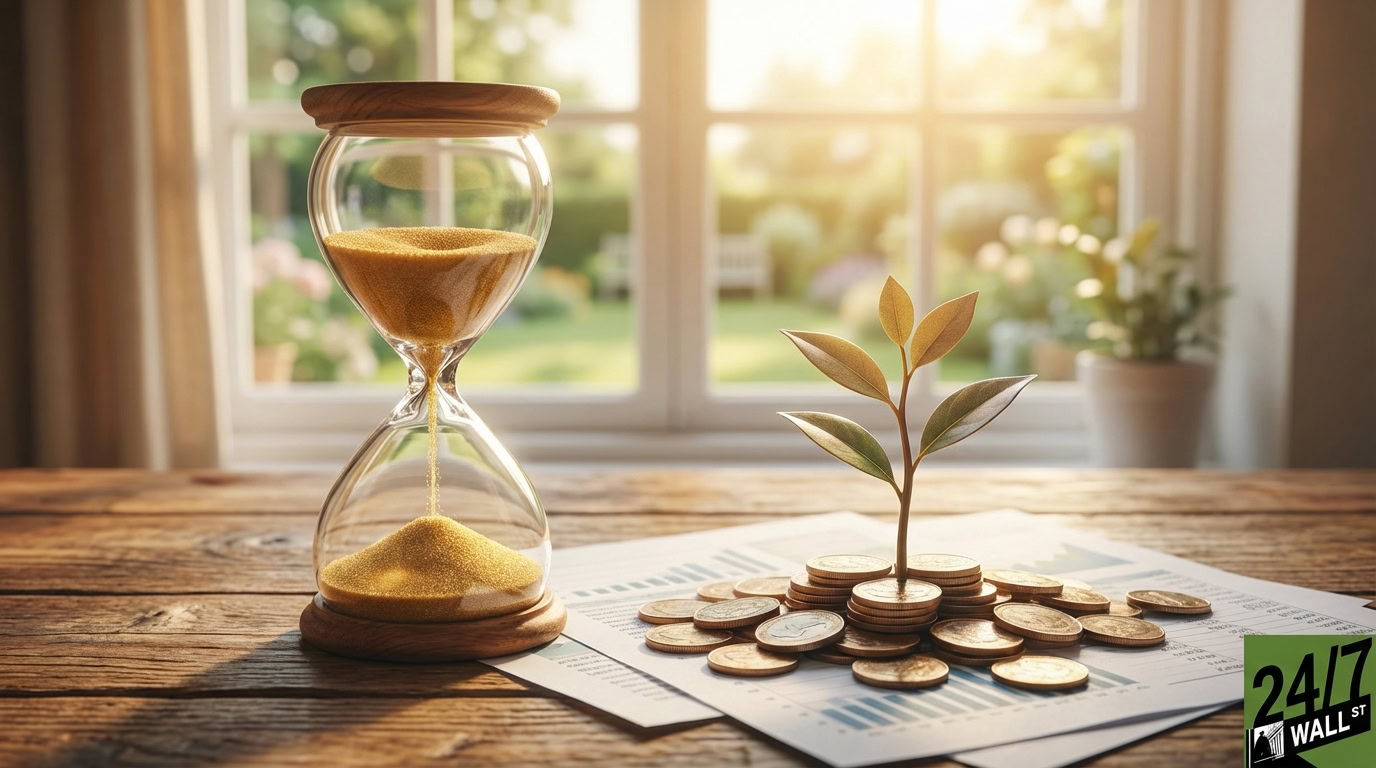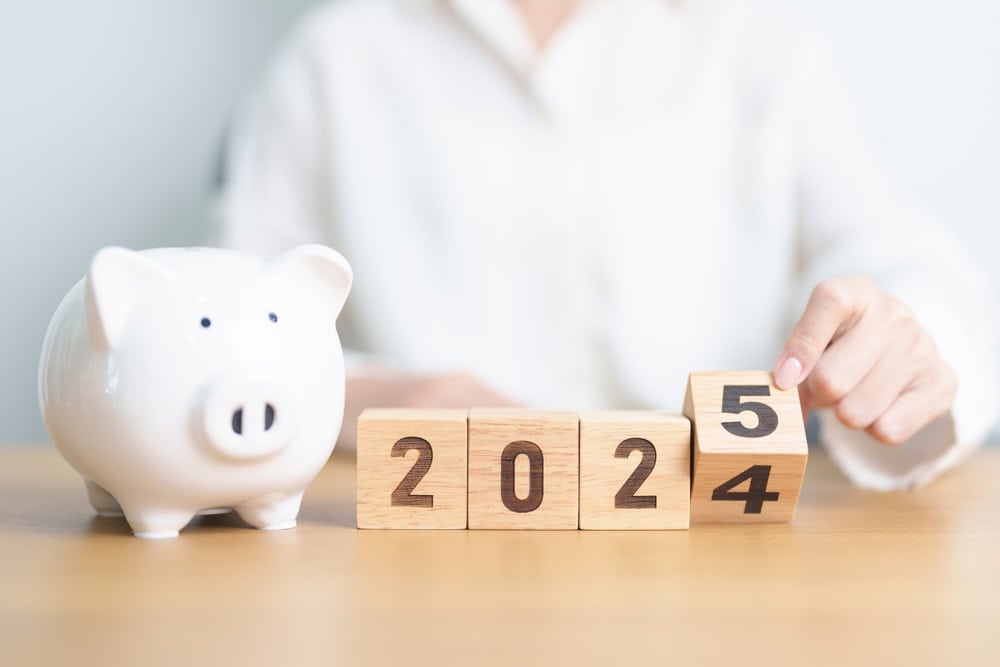#personal-finance
#personal-finance
[ follow ]
#budgeting #retirement-planning #savings #horoscope #work-life-balance #investing #retirement-savings
Careers
fromBusiness Insider
3 days agoI was laid off by Amazon and am struggling to find work. The job market feels like a brick wall, and I'm worried about my finances.
A laid-off Amazon IT support engineer is struggling to find new work, using severance to cover essentials while prioritizing budgeting and steady applications and networking.
Mental health
fromSan Francisco Bay Times
4 days agoMoney Dysmorphia Explained: Why Smart People Feel Broke When They're Not - San Francisco Bay Times
Money dysmorphia causes intense financial anxiety and guilt despite objectively healthy finances, driving overwork, avoidance of desired experiences, and chronic uncertainty about having "enough."
fromScary Mommy
6 days agoWomen Are Sharing Their Best Purchases of 2025 And They're All So Good
We live in a world of consumerism whether we like it or not. It's hard to do anything or go anywhere (or even doom scroll) without being served up the latest gadget, subscription, or solution - most of which end up being a reason you have to devote so much time to decluttering the damn house. How can you know when your latest splurge is actually worth it or just a waste?
Digital life
fromIrish Independent
1 week agoMy Money: 'My entire teens and college years were spent budgeting how I could afford nights out with my friends '
Abbie Beggs is a business owner and content creator. In 2020, during the first Covid-19 lockdown, when she was 20 and facing into her final year at university, she decided to launch Bound Apparel to fill a gap she identified in the market. There were plenty of leggings suitable for time spent at the gym, but what about the other hours of the day?
Startup companies
fromSilicon Canals
1 week ago10 "normal" expenses that quietly wreck middle-class budgets - Silicon Canals
Remember that moment when you check your bank account and wonder where all your money went? Last month, I had one of those wake-up calls. After getting laid off and freelancing for four months, I thought I'd gotten pretty good at budgeting. But there I was, staring at my statement, realizing I'd somehow spent $847 on things I couldn't even remember buying. That's when it hit me: The problem was all those "normal" expenses that everyone just accepts as part of life.
Digital life
fromBusiness Insider
2 weeks agoDo you trust AI enough to stop saving for retirement?
You can't completely discredit Musk's take, though. Yes, forgoing retirement on the belief that AI and tech will just figure it out in a few decades is a massive gamble. But the past few years have reminded us that tech can quickly flip the script on conventional wisdom. Five years ago, a career as a computer programmer felt secure. Now ... not so much.
Artificial intelligence
Real estate
fromSlate Magazine
2 weeks agoI Want to Teach My Kids One Final Lesson From Beyond the Grave. Trust Me, They Deserve It.
Disciplined saving, debt elimination, and rental-property strategy produced significant retirement assets while adult children’s poor financial choices create stress and demands for help.
Digital life
fromBusiness Insider
2 weeks agoA millennial who hit a 7-figure net worth after quitting corporate life to be a content creator explains how to make money online
Authentic, trend-aware personal finance content plus digital products and brand partnerships scaled Break Your Budget into a high-earning creator business.
Business
fromLondon Business News | Londonlovesbusiness.com
2 weeks agoMore than half of Brits are starting 2026 in debt - London Business News | Londonlovesbusiness.com
Over half of Brits enter the New Year in debt after Christmas, averaging £635 spent and typically taking weeks to repay festive costs.
UK news
fromLondon Business News | Londonlovesbusiness.com
3 weeks agoBrits plan extreme cutbacks to save over 2,000 as 2026 begins - London Business News | Londonlovesbusiness.com
Almost half of Brits plan money-saving New Year's resolutions, aiming to save over £2,000 on average, driven by rising living costs and security concerns.
fromThe Verge
3 weeks agoHere are over 20 gadgets that'll help you achieve your New Year's resolutions
Then life happens, and suddenly it's June and you can't recall what your resolutions even were. But it doesn't have to be that way. Sometimes the problem isn't a lack of motivation but rather a lack of tools, the kind that can make those goals feel more manageable and easier to achieve. After all, the right gear can help turn good intentions into habits that actually last.
Gadgets
Books
fromIndependent
3 weeks ago'I'm getting married in 2027. So that's a great come around' - Eoin McGee on the injury that changed his life, finding new love and his latest financial advice book
Eoin McGee begins a new life chapter after an eight-year health scare, shifting focus to philosophical and practical strategies for living free from financial stress.
UK news
fromLondon Business News | Londonlovesbusiness.com
4 weeks agoExperts reveal ways to maximise your savings in the New Year - London Business News | Londonlovesbusiness.com
Use tax-advantaged ISAs and other savings accounts to protect and grow funds, choosing cash or stock options based on risk tolerance and access needs.
Digital life
fromeLearning Industry
1 month agoHow eLearning Improves Personal Finance And Responsible Spending
eLearning delivers accessible, interactive personal finance education that builds budgeting, saving, debt management, and investing skills, improving financial decisions and long-term stability.
fromwww.mercurynews.com
1 month agoHoroscopes Dec. 31, 2025: Gabby Douglas, being happy with yourself and how you look
Happy Birthday: Give yourself a chance to calibrate what satisfies your needs before you venture forward. Having the facts and formulating the outcome first is necessary this year if you want to be successful. Being happy with yourself and how you look, feel and present yourself to others qualifies you to give your all and assume a position of control. Put your emotions to rest and your valuable assets to work for you. Your numbers are 8, 19, 22, 27, 36, 42, 45.
Arts
Careers
fromBusiness Insider
1 month agoI was laid off by Oracle 2 years ago and still can't find a job. I've blown through my savings and now sell antiques to stay afloat.
Laid-off site reliability engineer Clair Todd remains unemployed for over two years, reselling antiques to cover expenses after exhausting savings and facing substantial student debt.
UK politics
fromLondon Business News | Londonlovesbusiness.com
1 month agoBRC: Consumer confidence 'remains gloomy' - London Business News | Londonlovesbusiness.com
Consumer confidence edged up in December but remained weak, retail spending expectations fell and personal saving decreased while overall spending rose.
from24/7 Wall St.
1 month ago6 Mistakes To Avoid If Trump's $2,000 Stimulus Check Is Approved
Many Americans have visions of $2,000 stimulus checks dancing in the heads thanks to the president's promises. The Trump administration seems resolute in delivering a welcome boost to middle-class taxpayers, a cool $2,000 per person, funded by the influx of tariff revenues from trade partners. But the Treasury has yet to sign on the dotted line, and there's no 100 percent guarantee that the stimulus package will see the light of day.
US politics
fromenglish.elpais.com
1 month agoTori Dunlap: Talking about money is one of the most subversive things you can do'
Influencers are incentivized to make you feel behind so you keep buying. The problem is not influencers as people, it is the culture of constant consumption that social media amplifies. When spending becomes a performance, it distorts reality. she tells EL PAIS. You see the purchase, not the credit card bill. You see the lifestyle, not the insecurity behind it. Influencer spending can create pressure, comparison, and shame, all of which keep people from focusing on long term financial health.
Women
from24/7 Wall St.
1 month agoMark Cuban is absolutely right when he says "if you're happy when you're poor, you're gonna be happy when you're rich"
Cuban's origins are fairly humble. He was raised in a middle-class family in Pittsburgh and once had a job selling garbage bags door-to-door around his neighborhood (yes, you read that correctly). He bootstrapped his way up, starting with bartending and software sales before founding MicroSolutions, which he sold for $6 million in 1990, and later co-founding Broadcast.com, acquired by Yahoo for $5.7 billion in stock during the dot-com boom.
Bootstrapping
fromIndependent
1 month agoWhat I spend on Christmas: 'I would imagine that my total will be about 2,000 and the majority of my budget will be on my own kids'
Christmas is just around the corner and while we all try to buy things early to help spread the cost, it still adds up to the same amount in the end as Lucy Nevins knows too well. She estimates that she won't get much change from €2,000 over the festive season as she buys gifts for family and friends, and stocks up the cupboards with treats to cater for visitors and her own family.
Digital life
fromPsychology Today
1 month agoWhy Wealth Feels Like Purpose-But Isn't
Most of us like to believe we're too sophisticated to confuse money with purpose. Yet a surprising number of people, especially younger generations, slip into that trap without ever consciously choosing it. The idea that "my purpose is to make money" has become so pervasive that it rarely gets questioned. It's simple, it's measurable, and on the surface, it makes sense.
Philosophy
from24/7 Wall St.
1 month agoEarning 200,000 Dollars Annually From a Trust Fund. Can I Retire at 50?
Retirement already appears financially realistic once the second trust opens up in the next few years. Both trusts have the potential to grow over time, further increasing the amount available for withdrawal. A 5 percent annual draw from the 10 million dollar trust alone provides 500,000 dollars per year. The Redditor also noted that the current trust provides about 200,000 dollars in tax-free distributions, which brings the total to roughly 700,000 dollars per year.
Retirement
from24/7 Wall St.
1 month agoHow to Choose Between a Lump Sum Pension and Lifetime Payments
A payout worth several million dollars can tempt anyone, but experts say it is important to compare guaranteed income with potential investment results before deciding. Financial planners often point out that lump sums offer flexibility, control, and the ability to leave remaining funds to heirs. However, they also come with risk. Managing a large investment requires discipline, steady returns, and a clear understanding of how long the money needs to last.
Business
Business
from24/7 Wall St.
2 months agoDave Ramsey says "if you do what rich people do, you'll become rich and if you do what poor people do, you're going to be poor"
Adopting the habits, mindset, and disciplined behaviors of wealthy people—not mere imitation—is central to achieving long-term financial success.
[ Load more ]








